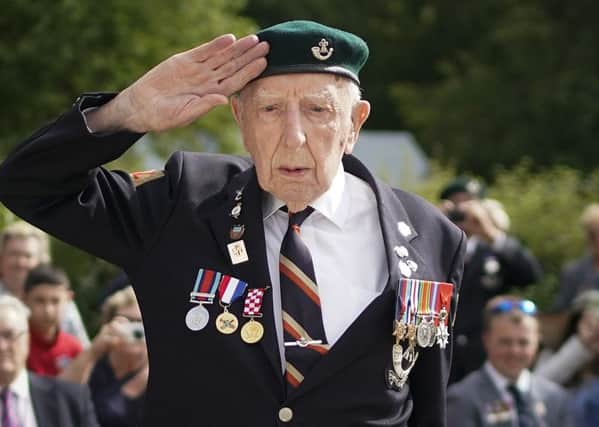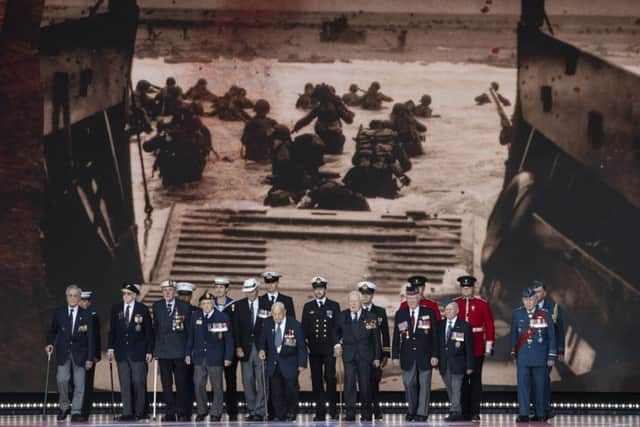Learn from the past and make GCSE history compulsory for teenagers – Jayne Dowle


Holland is one of several leading historians behind a five-year project by the Chalke Valley History Festival to chronicle the story of Britain from 1603 to 2016. Their work will culminate in a 35-chapter book to be presented to every secondary school in the country in 2023.
Advertisement
Hide AdAdvertisement
Hide AdHis colleagues in the ‘‘Thread of History’’ venture include broadcaster and historian Dan Snow and Dr Clare Jackson, who presented the landmark BBC2 series The Stuarts and The Stuarts in Exile a few years ago. Topics include the Rotten Boroughs, the Levellers (the 17th-century equal rights for working men campaigners, not the folk-rock band), the South Sea Bubble and Waterloo.


Now don’t tell me that this doesn’t whet your curiosity just a little bit? For all kinds of reasons (usually politically-motivated), some of the subjects in this great sweep of British history have ‘‘disappeared’’ from the school curriculum over the years under the aegis of progress.
However, I’d argue that many adults, never mind teenagers, would welcome an easy-to-follow primer on major events and themes of which contemporary knowledge is scant.
It reminds me of an excitable conversation I had with a dad recently who was helping his Year 11 son with history GCSE revision. This chap was amazed to learn more about the Korean War of the 1950s than he had ever picked up at school himself.
Advertisement
Hide AdAdvertisement
Hide AdWho knew, he enthused, about all the British servicemen who were killed out there, and how worried people really were about the threat of Communism to the West? Not many of us, I conceded, hastily trying to piece together my own fractured recall of the one or two A-Level lessons when we skipped quickly over this particular overseas conflict.
But wait, we haven’t answered the question yet. Should history really be studied by all secondary school pupils? I know what I think, but I’m prepared for my standpoint to be challenged, because I studied history, and among other things, learned that I wasn’t always right. So, can everybody please think for a moment and then put forward their argument in favour or against? Each person will be listened to equally, then we can all reflect and consider each point in turn.
We might also take a little time to explore some contextual evidence before we start to formulate a strong case for either side. Those of you who maintain that you hated history at school and can’t see the point of being asked to commit to memory a bunch of dates and stuff, perhaps you’re beginning to question your conviction just a little?
You see history isn’t just about, well, history. Learning how to appreciate its value teaches us how to gather evidence from a range of sources, piece it all carefully together and make a case.
Advertisement
Hide AdAdvertisement
Hide AdQuite apart from the fact that history provides us with a direct tap-root to the past, it also prepares us for the challenges of modern life. Yet, in many secondary schools, the subject is now classed under the label of ‘‘humanities’’ and GCSE students are forced to choose, typically, between history and geography.
In the interests of a balanced approach to study, I can see the argument for this – there you go, I learned how to appreciate the other side’s point of view at Barnsley Sixth Form College – but I will still argue that it slices in half two subjects which really should be relatable to each other.
Now I’m not for a minute arguing that history and geography should somehow be amalgamated into one single ‘‘humanities’’ qualification, although some schools do offer this and the idea might benefit from at least a wider airing.
Rather, I find the distinction difficult because so much of history has been influenced by human geography, delineated by economic forces and mapped out by the physical presence of rivers and mountains.
Advertisement
Hide AdAdvertisement
Hide AdI had this very discussion only the other week with my teenage daughter, who will choose her GCSE options in September. With an interest in rocks as well as Victorian frock-coats, she’s torn between both subjects and, ideally, would like to study both. And why can’t she?
This difficulty is exactly what Mr Holland is talking about. “So many people give it up as a choice between history and geography and other subjects. That is absurd. We all need to understand the past. That’s how you make sense of the present and shape the future. And if we don’t, we make mistakes.”
This brings us straight to the Treaty of Versailles, the world-changing post-First World War international accord which was signed exactly a century ago tomorrow. Anyone with even the remotest sense of history appreciates that this contentious agreement set in train the Europe we have inherited today. I rest my case. History matters.